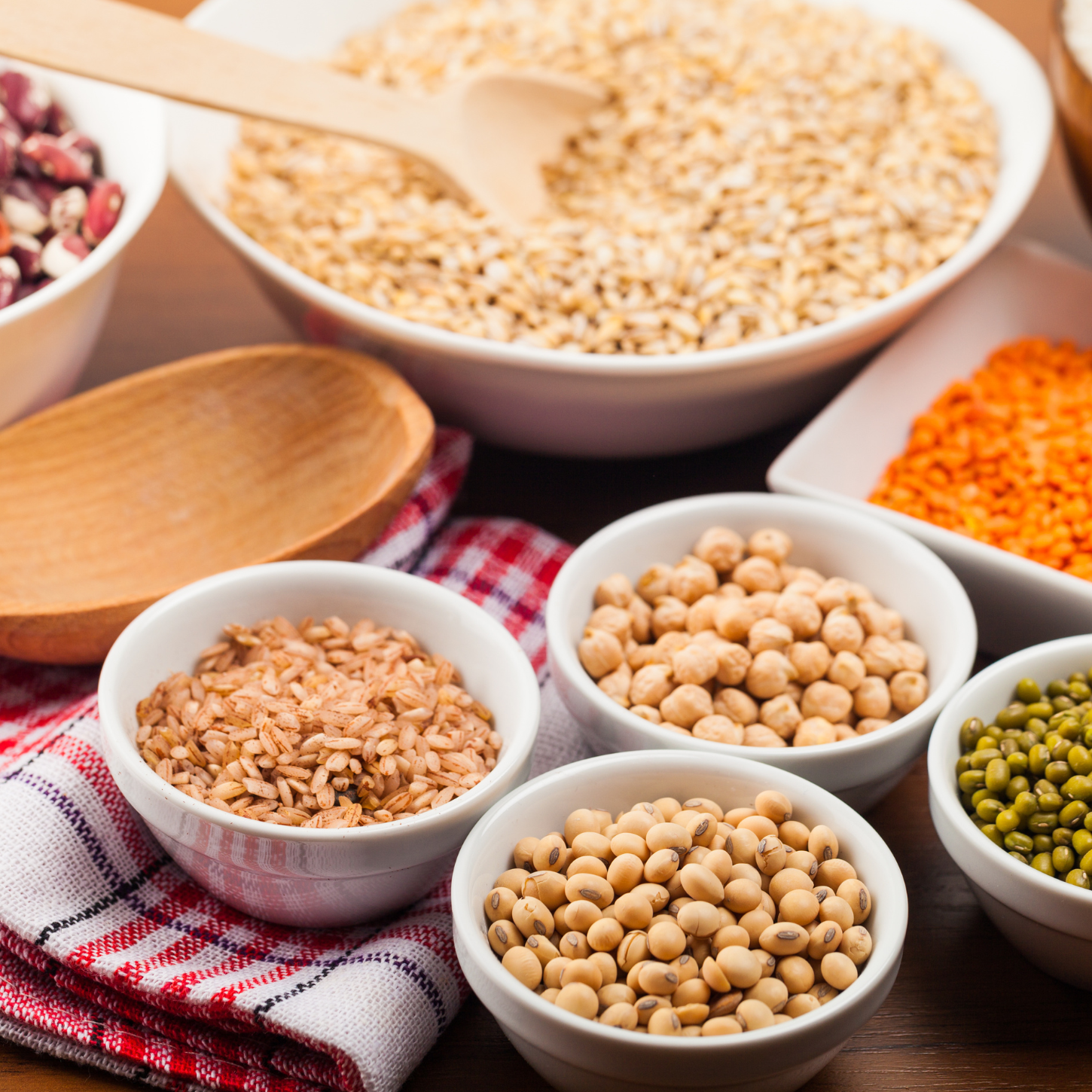Transcript: The Top 5 Supplements for Your Microbiome
On a scale of 1 to 10, how would you rate your overall health?
For those of us living in the Western world, where fast food and sugary treats are in easy reach and where the majority of people work long hours sitting in a chair, few of us might confidently give ourselves a 10.
But one thing that is becoming more and more clear is that if you want to promote optimal health and live a long and happy life, then it’s critical to consider the world of bacteria that lives on and within us- our microbiome.
Our microbiome consists of 40 trillion microorganisms, working like chemists, helping you to digest your meals, formulating essential nutrients you can’t produce on your own, protecting you from disease, and even influencing the expression of your DNA.
These little critters also play a critical role in shaping your appetite, allergies, metabolism, and even your nervous system function as they are involved in the production and function of your neurotransmitters.
So as you can imagine, with all the functions they play, if your microbiome is out of balance, if you have what we call dysbiosis, it can increase your risk of developing chronic diseases like diabetes, inflammatory bowel disease and autoimmune disease, as well as neuropsychiatric illnesses like schizophrenia, ADHD, obsessive, compulsive disorder, and chronic fatigue syndrome.
What are some things that can cause dysbiosis? Age, a poor diet, antibiotics, toxins, infection, even certain medications like the oral contraceptive pill- these are just some of the things that can disrupt your body’s ecosystem.
Now when we talk about our health, the first things that come to mind are usually diet and exercise. While these are both extremely important for our gut health, today I want to talk about supplements that can make sure your gut microbiome stays balanced.
So let’s look at the top 5 supplements you should consider for your gut.
1. Probiotics
Let’s start with probiotics. Probiotics are the good bacteria living in your gut. They help to break down and digest food, they support overall gut health, they ensure the immune system works well, and they also improve the production and regulation of hormones such as insulin and leptin.
You may be able to get enough probiotics from your food and spending time outdoors, however, it can sometimes be hard to maintain consistent numbers of the good guys that can help keep you enjoying a balanced state of health.
By taking a high quality supplement, you can help to ensure that you’re introducing a high number of these powerful good guys into your system on a daily basis. When purchasing a probiotic supplement, ensure that the product has been third-party tested and pay attention to the amount of colony-forming units it contains. Generally speaking, this number should be in the billions, not millions. Try to also buy products with a range of strains especially Lactobacillus and Bifidobacterium and remember to check the expiration date.
2. Prebiotics
Without prebiotic fiber, the probiotics can’t do their job. They are a special kind of soluble fiber that are utilized predominantly by the good bacteria as their fuel. In fact, we can’t even digest prebiotics—their sole purpose is to feed our gut bacteria, helping the microbiome flourish.
In fact, many experts agree that prebiotic fiber is the single most important nutrient for a healthy gut.
When you feed your gut microbes prebiotic fibers, they produce these things called short-chain fatty acids which promote the growth of beneficial bacteria, maintain the health of the gut, reduce inflammation, and regulate brain physiology and behavior just to name a few.
Prebiotics occur naturally in many plant-based foods such as vegetables, fruits and whole grains.
You can also take a prebiotic powder as a supplement which you can add to a smoothie or mix it in with other foods to give your microbes their best chance at colonizing and thriving.
Partially hydrolysed guar gum (PHGG) is one of the best options for those who are sensitive to bloating and gas from fermentable fibers. When introducing any prebiotic fiber, start with a low dose and slowly increase the amount over a number of weeks to build tolerance.
3. Omega 3s
Omega-3s are our third supplement for the gut. Omega-3 fatty acids affect the gut microbiome in three primary ways: 1) they can increase the diversity of healthy gut bacteria, 2) they increase the production of anti-inflammatory compounds and decrease levels of pro-inflammatory chemicals such as endotoxins , and 3) they regulate the levels of short chain fatty acids which also work to decrease inflammation and help your immune system function effectively.
The best plant-based sources of omega-3s include flaxseeds, chia seeds, hemp seeds, and walnuts. Nuts and seeds also contain high amounts of fiber and studies show that people who eat more nuts are healthier and live longer.
Many people would also benefit from taking an omega 3 supplement.
The omega 3s, EPA and DHA, are often sourced from fish oil, krill oil, and cod liver oil although they also come with the same health, environmental, and ethical concerns as consuming seafood. Algal oil is a great plant-based supplement that makes for a superior alternative to fish oil. It is more sustainable and can be grown under controlled conditions. This means it is not contaminated with toxins such as mercury and microplastics. Compared to fish oil, algal oil is higher in DHA and lower in EPA.
4. Vitamin D
Vitamin D is known as the “sunshine vitamin” because our bodies produce it in response to sunlight exposure. Due to low levels of sunshine, mainly being indoors and wearing long-sleeved clothing, vitamin D deficiency is the most common vitamin deficiency in the world today.
While most people know of vitamin D’s role in depression and immune function, it also plays a key role in gut health.
According to a study in Scientific Reports, 80 healthy females who were consuming an insufficient amount of vitamin D during the day were given 50,000 international units (IU) of vitamin D per week and found that there was an improved diversity of gut microbiota within participants after 12 weeks.
Research has also shown that vitamin D helps to regulate intestinal barrier integrity and control both innate and adaptive immunity in the gut.
Vitamin D is naturally present in very few foods, making food an unreliable source. So as a general rule, eating foods that are fortified with vitamin D and supplementing is essential. For most people who don’t get 20 to 30 minutes of direct sunlight every day, a daily dose of 2,000 IU of vitamin D3 is not a bad idea.
5. L-glutamine
And last but not least, L-glutamine.
L-glutamine is the most abundant, naturally-occurring amino acid in the human body. Amino acids are critical because they fuel white blood cells, support the immune system, help to build and repair muscle tissue, and metabolize the proteins from our food. When it comes to the microbiome, studies indicate that L-glutamine can positively affect the immune response, help heal the intestinal wall, and help balance intestinal microflora.
Taking it in a supplement form can deliver a large boost to your system to help support muscle growth, promote a healthy gut lining, and support immune function.
As you can see, having diverse microbiota in your gut is key for all kinds of healthy bodily functions and for warding off infectious diseases. So I’ve just shared with you the five top supplements you can take to support your microbiome. Now it’s your turn- please share in the comments what you’re going to do for your gut now you’ve listened to this video. Please like and subscribe too and if you want to know more about how poor gut health can put you at higher risk of autoimmune disease, check out this video here.














What Do You Think? Comment Below: